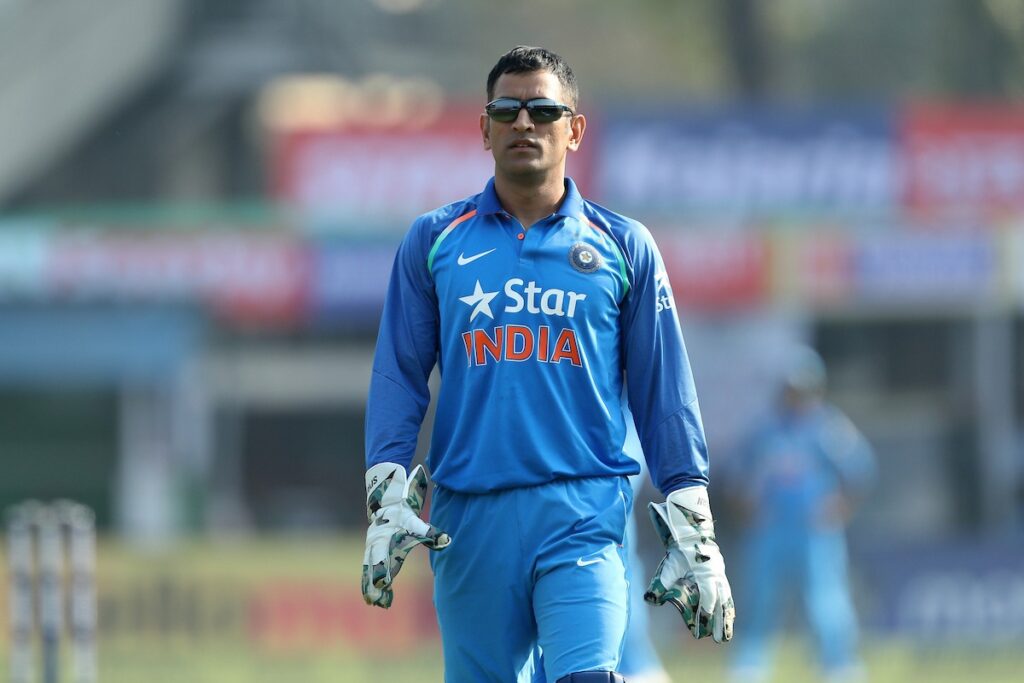
Damp squib. Not really a phrase you’d associate with MS Dhoni, and the legendary career he went on to carve out for himself. But that was exactly what Dhoni’s Test debut was. Literally. December, 2005, and it bucketed down for days in Chennai to ensure that we got a little over a day’s play in the Test between India and Sri Lanka.
The prelude to the series had been very low-key, and one of the few highlights was Dhoni being brought before the media throng after practice one afternoon. Most cricketers at the beginning of their careers are quite nervous in front of the cameras, and deferential too. Dhoni arrived with a smile, and betrayed no hint of unease.
The most revealing moment came a few minutes into that interaction in the stands at Chepauk. A journalist asked him about his days as a goalkeeper in school, and how it might have influenced his cricket. “Ask me something else,” said Dhoni with a broad smile. “That question has become boring now. I don’t want to keep looking back.”
More than a few in the press pack were taken aback. Not so much by the answer, as the confidence with which he expressed himself. It was a trait that would be repeatedly glimpsed in the years ahead. Not for the Dhoni the diplomatic or politically correct option. He would invariably speak his mind, and damn the consequences.
That self-belief was evident in his early days on the field as well. At Lahore in 2006, with the ODI series against Pakistan tied at 1-1, India were chasing a stiff target. Mohammed Asif had bowled a magical spell with the new ball, and despite Sachin Tendulkar’s magnificent 95, the game was very much in the balance with 99 needed at more than seven an over. Just before Dhoni walked out, Greg Chappell, then India’s coach, asked him: “Will you be there at the end?”
Also Read: Dhoni, Simple Plans and Double-Hundreds in 30 Overs
“Just give me ten balls to play myself in,” said Dhoni in response. “If I’m still there then, I’ll be there till the finish.” He scored four from the first 10 balls he faced, but there was no hint of being under pressure. Then, Umar Gul pitched one on a length, and the ball was whiplashed past the man at cover for four.
Dhoni finished with 72 from 46 balls, and a tough chase became a stroll. “His temperament and personality are incredible, Chappell told ESPNCricinfo a few weeks later. “A few months ago, he was just a basher. Now he’s one of the best finishers, and can also bat up the order. We can depend on him to finesse an innings, batting like [Michael] Bevan used to. But he also has the big shots that Bevan didn’t have.”
As a captain too, Dhoni never shied away from guarding his team’s path. As a team that had started the 2011 series in England ranked No.1 in Tests disintegrated over the course of four Tests, Dhoni faced some tough questions at press conferences. After defeat at Edgbaston, he was asked whether he was bothered by India’s ineptitude in conditions that favoured seam and swing bowling.
Instead of contrition or apology, Dhoni took the questioner on. “We play only about 15 per cent of our cricket in these conditions,” he said. “So, I’m not going to worry too much about it.”
Three years later, as India fell apart again after taking a 1-0 lead at Lord’s, Dhoni skipped optional practice before the final Test at The Oval to go shooting at the Metropolitan Police’s range. It invited a barrage of criticism, but also served the purpose of taking attention away from under-performing young batsmen like Virat Kohli and Cheteshwar Pujara.
A few months later, his Test retirement caused as much of a stir. Individual landmarks had never held any attraction for Dhoni. Another man might have tried to limp to the milestone of 100 Tests. Dhoni had no hesitation in walking away after 90, convinced that the group of youngsters he had helped mould could take the team forward.
“He had skill and technical ability that were just out of the ordinary,” a teammate once said about a sporting legend. “When it came to control, and especially leading the team, he managed to see and analyse situations quicker than anyone else on the field. Thanks to that, he made the difference.”
The subject of that remark was not Dhoni, but Zinedine Zidane. But Marcel Desailly, France’s defensive rock during the 1998 World Cup campaign, could easily have been talking about Dhoni. Chappell, who was one of the first to spot Dhoni’s leadership potential, used to wax eloquent about his hand-speed and the ability that it took to play the helicopter shot for six. But more than anything else, he used to emphasise his temperament and that beautiful mind.
It changed Indian cricket forever.
Also Read: MS Dhoni – Riding with no Brakes, and Keeping his Word



